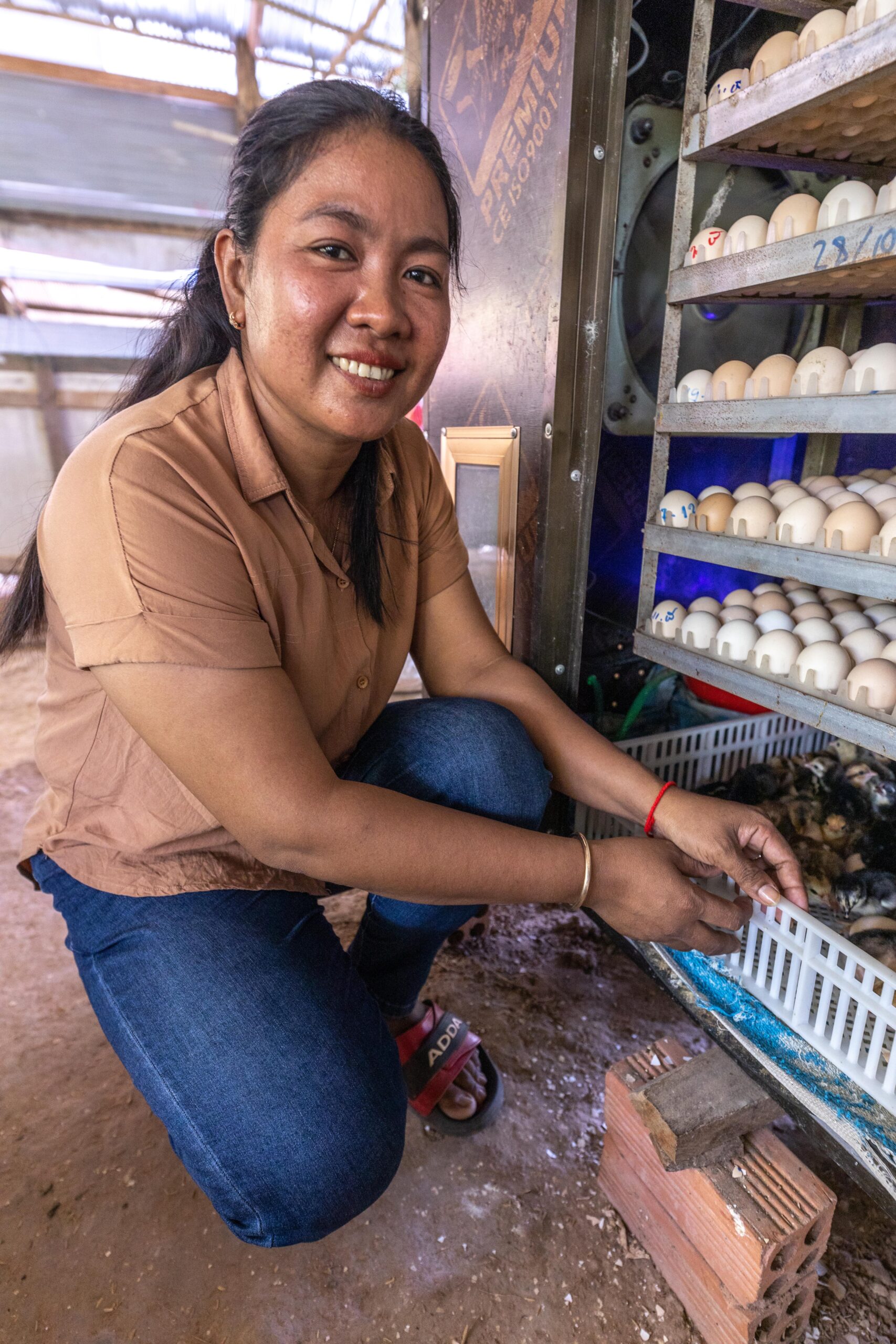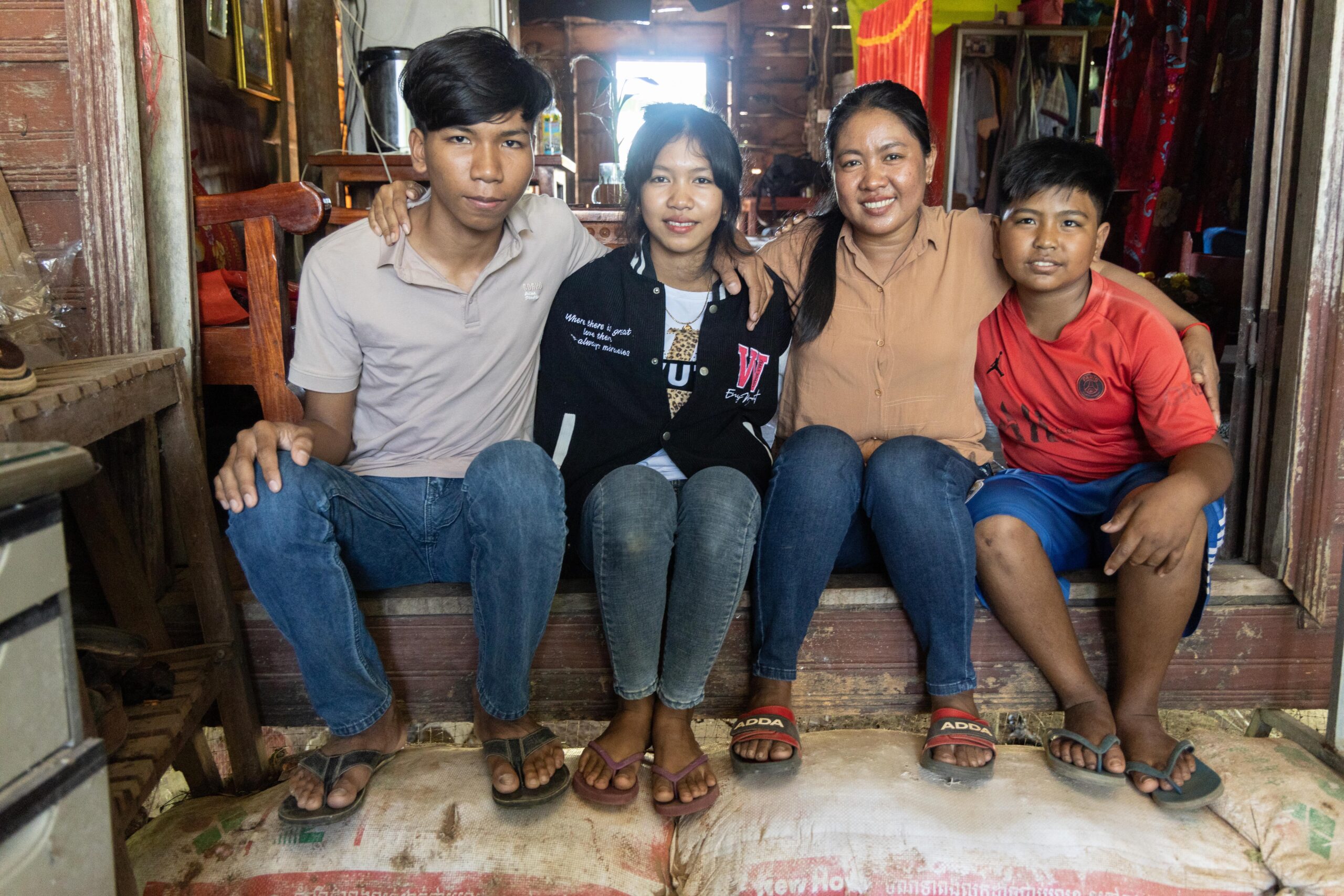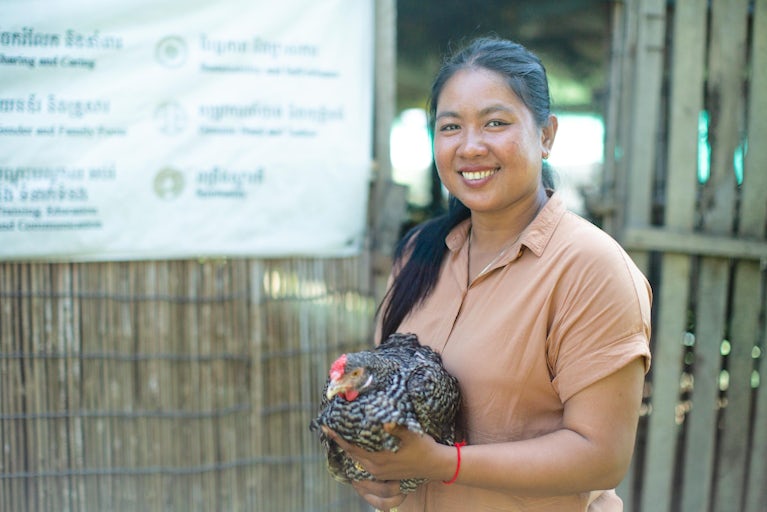Set Hach is not an ordinary chick producer. Rather, she’s a leader in her community, an entrepreneur and a businesswoman, and she has big dreams of owning and operating a chicken processing facility so she can supply her local community with fresh meat sourced from the farmers and producers who are part of her cooperative and her community.

Here in Siem Reap Province, Cambodia, home to the famous Ankor Wat temples, agricultural cooperatives can make a big difference in the lives of smallholder farmers and producers like Set.
Despite its reputation as a tourist destination, nearly 20% of the population of Cambodia live below the national poverty line. And while the country had made tremendous improvements in poverty reduction in the decade between 2009 and 2019, the COVID-19 pandemic and the knock-on economic effects of climate change, conflict and the pandemic have reversed its poverty reduction progress.
Heifer Cambodia has been working alongside farmers, producers and its partners to support more than 333,000 families since its launch in 1999. Heifer Cambodia’s Poultry Project of National Pride aims to close the income gap for nearly 90,0000 smallholder farmers and their communities.
This work entails supporting farmers as they join self-help groups that can support them as they work toward Sustainable Living Incomes.
Like many Cambodian farmers, Set raised chickens the “traditional way” before joining Heifer’s project, a method she describes as letting the chickens run “anywhere.” Before she was trained on better rearing practices, “the chickens got sick, or died,” she said. “Sometimes the dog ate the chicken.”
Because the chickens were not well cared for, Set was only able to sell about 5 to 10 kilograms, or 11 to 22 pounds, of chicken every two months, earning around $50 each time. In 2018, she started working with a Heifer-supported organization that gave her a $1,500 loan to build a chicken coop and purchase 200 chicks. She was also able to buy a hatchery that can hatch more than 1,000 eggs at a time, and learned the importance of vaccinating her chickens, keeping them safe in a coop and separating the birds when necessary to keep them healthy.

A natural leader, Set connected with her peers and members of her community to form the Sattrey Phuokphal Agricultural Cooperative, which now has 514 members. The group now supplies local restaurants and street vendors with about 500 chickens a month and is a member of the Social Entrepreneurs Union of Agricultural Cooperative (SEUAC), one of the 15 Unions of Agricultural Cooperatives in Cambodia that federalize cooperatives for even greater impact.
As a cooperative leader, Set has administrative duties and management responsibilities, but she is still investing in her business. She currently has 165 hens, 35 roosters and 700 chicks. The hatchery contains six laying areas, each fitting 176 eggs. The eggs hatch after three weeks and Set sells the day-old chicks to non-cooperative members for about $1.25 each and to cooperative members for slightly less.
But she’s not done yet. Set has many dreams for her growing family and for scaling up her business and building a chicken processing facility to close the loop on this important value chain.
Chickens are a big part of realizing both dreams. Set regularly uses the eggs her chickens produce in her cooking. Whereas before her children only had the high protein food occasionally, now they enjoy fresh eggs daily. Evidence of their improved nutrition is obvious to Set who points to their height.
“You can see each one’s size,” she says. “They are all big.”
Take Action
Supporting women farmers is vital to our mission of ending hunger and poverty. This International Women’s Day, learn more about this work or donate now to help more women increase their income, feed their families and build a better world.

